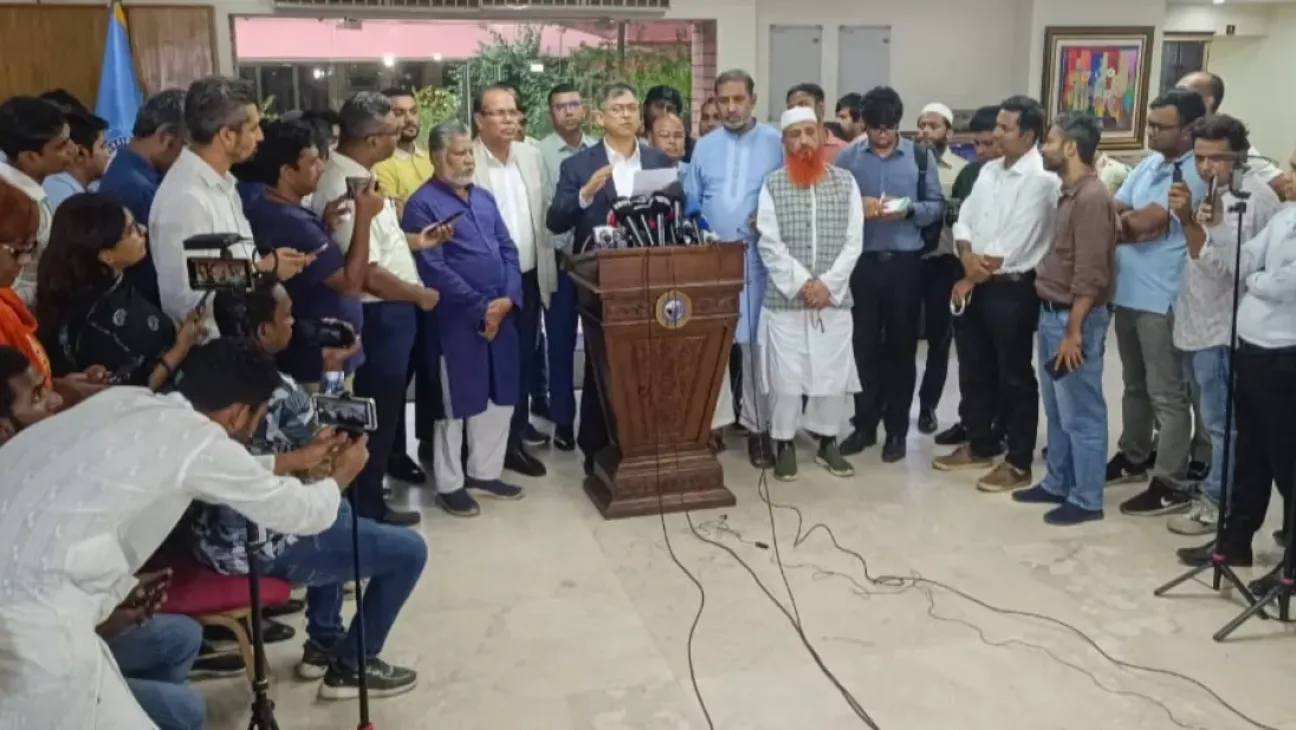BNP Standing Committee member Salahuddin Ahmed on Sunday urged all political parties to reach a gentleman’s agreement to nominate at least 5% women candidates in the upcoming 13th parliamentary elections.
Speaking during a break in the 19th session of the National Consensus Commission (NCC) dialogue at the Foreign Service Academy in Dhaka, Salahuddin said that while there is no time to amend the constitution before the vote, parties should voluntarily commit to improving women’s representation.
“We are now proposing that each political party nominate women candidates in at least 5% of the 300 general seats in the upcoming election,” he told reporters. “Since there is no scope to amend the constitution before the election, this should be a gentleman’s agreement for now.”
Push for Broader Representation
Salahuddin also laid out a long-term plan. He called for a constitutional amendment after the election that would designate 10% of general seats—30 in total—for directly elected women MPs. These would be in addition to the 50 currently reserved seats.
That would bring total female representation to 80, he said, but only as a transitional measure. “Eventually, we want to eliminate the reserved seat system and ensure all women MPs are elected directly,” he added.
Consensus on Police Commission
Speaking on law enforcement, Salahuddin noted that all major political parties had agreed on forming an independent Bangladesh Police Commission.
He described it as a body that would oversee professionalism and accountability in the police force. “The commission will also be responsible for disposing of complaints against members of the police and conducting impartial investigations into complaints to be made by the people,” he said.
The commission’s structure and functions will be determined by a law passed in parliament. Salahuddin noted that the NCC had asked for its recommendations to be considered when drafting that legislation.
He emphasized that departmental inquiries are often the only recourse for allegations against police personnel. A new commission should allow citizens to file complaints directly, with the option for judicial investigations, he added.
On Foundational Principles
Salahuddin also reiterated BNP’s opposition to the constitutional principles inserted through the 15th amendment, particularly Article 8.
“Our position remains that the principles adopted during the 5th amendment—faith and trust in Almighty Allah, democracy, and nationalism—should be restored,” he said.
Still, he said BNP was open to newer proposals that include values like “equality, human dignity, social justice, democracy, and religious freedom and harmony” as fundamental principles. Any such changes, he said, should be left to parliament.
Term Limits and Political Reform
Another key topic discussed was term limits for the prime minister’s office. Salahuddin said the commission had agreed to BNP’s earlier proposal to restrict any individual from serving as prime minister for more than 10 years in total, regardless of how many terms they serve.
“This will prevent the scope of building fascism or personality-centric rule,” he said.
He expressed hope that the NCC’s ongoing dialogue with political parties might wrap up before July 31, if talks continue to progress steadily.









